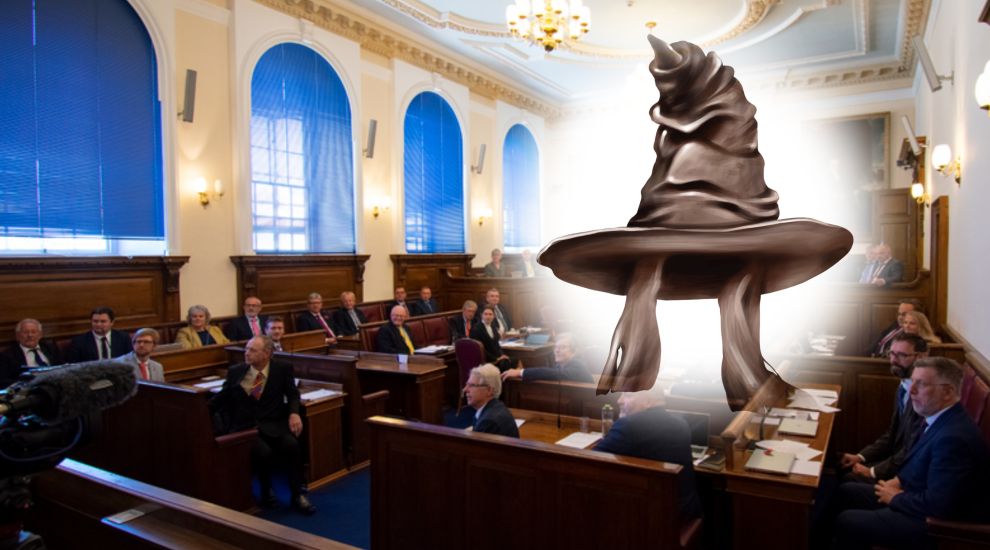


Deputy Gavin St Pier offers up his thoughts on the latest States debate, touching on the island's future election and P&R's 'grilling' about 'who knew what, when' again:
They say that the Devil makes work for idle hands. Perhaps that’s why after I was elected to the Committee for Health & Social Care (HSC) in April, I didn’t manage to write about that States’ meeting for Bailiwick Express? Perhaps too that is why last week’s States’ meeting, which should have only lasted one day, lasted two?
The rot set in when the Presiding Officer extended question time following the two routine committee statements, one from HSC and the other from the Committee for Employment & Social Security (ESS.) He must know by now, surely, that Deputies will literally keep asking questions of each other until told to stop. That’s why the rules prescribe a time limit, which you extend at your peril.
The mettle of the President of the Policy & Resources Committee (P&R), Deputy Lyndon Trott, was tested during Deputy Adrian Gabriel’s Rule 12 ‘urgent’ question. Each member can ask up to two supplementary questions, but only arising out of the answer to the main question. Deputy Trott demonstrated his considerable political acumen and experience by giving as little away as possible in the first response that others could latch on to with more questions. This was why P&R had ultimately decided against giving a statement of their own, as it would have opened up the field to more questions. The less there is to work with, the easier it is for the Presiding Officer to simply rule the question ‘out of order.’
P&R said enough to contain the story, but not to kill it. P&R already seem to have learned enough to believe there has been no cover-up. That’s no great surprise as that term implies ‘intent to conceal,’ as opposed to ‘failure to disclose in a timely manner,’ which is the most likely explanation. This did not make the whole Q&A exercise futile – far from it. We learned the terms of reference for the review ordered by the Head of the Public Service, being undertaken by a retired lawyer from St. James’ Chambers - although it might have been better to have published these sometime ago, rather than waiting to be asked. The terms seem focussed on what happened up to the time HSC was informed, rather than why it took another 3.5 months for P&R to be brought into the picture. Consequently, Deputy Dave Mahoney asked a key question – which was ruled out of order – ‘was the Head of the Public Service one of the senior officers who knew what was going on?’ If so, that places in question the independence of the review he's commissioned. In consequence, perhaps unsurprisingly, Deputy Yvonne Burford, as President of the Scrutiny Management Committee (SMC), implied that her committee is keeping its options open, if it doesn’t believe the review has addressed and answered the key questions.
If there is one thing that politicians like talking about, it’s ourselves. We know something about that. The opportunity to spend a whole day doing so, was too good to miss. The catalyst – this time – was another States’ Assembly & Constitution Committee (SACC) policy letter preparing for our General Election on 18th June 2025. The committee, of which I am now a member, had recommended reflating candidates’ expense limits simply to take account of inflation since 2020, which has been quite significant. This was enough to trigger a series of hair shirt election stories about how members had managed to get elected by spending tuppence ha’penny or simply by rubbing two sticks together. That was sufficient to win an amendment to freeze spending limits at the same nominal level as 2020.
With blood in the water, the sharks circled with another amendment dreamt up – literally – on the floor of the Assembly offering a suite of lower and lower alternative limits. If such limits are ever adopted, they will effectively prevent candidates reaching the electorate directly with advertising or their own printed manifestos. There will be only one, government-sponsored route, a single telephone directory size publication. Having such centralised control of how candidates can present themselves to the electorate is akin to North Korea. The organisations, such as the Vienna Commission or the Commonwealth Parliamentary Association, on whose guidance we more typically rely in planning our elections, are clear that limiting candidates to only state-sponsored routes could be restrictive and spending limits should not be so tight as to prevent candidates conducting meaningful campaigns.
No-one is proposing a US-style spending free-for-all; but neither can limits be driven by envy that some candidates might just be able to afford to spend a little bit more than others. We already have an electoral system that is – being polite – so ‘unique’ that the electorate have very little hope of knowing who on earth they are voting for. If we are not careful, we will make the whole system so mad, that we might as well abandon elections and just select names from a sorting hat, Harry Potter-style.
A compromise amendment was cobbled together that directed SACC to return by September having looked at the spending limit issue again. It’s in everyone’s interests that SACC and the States get this decision right when the matter is re-debated. Our democratic process itself is at stake.